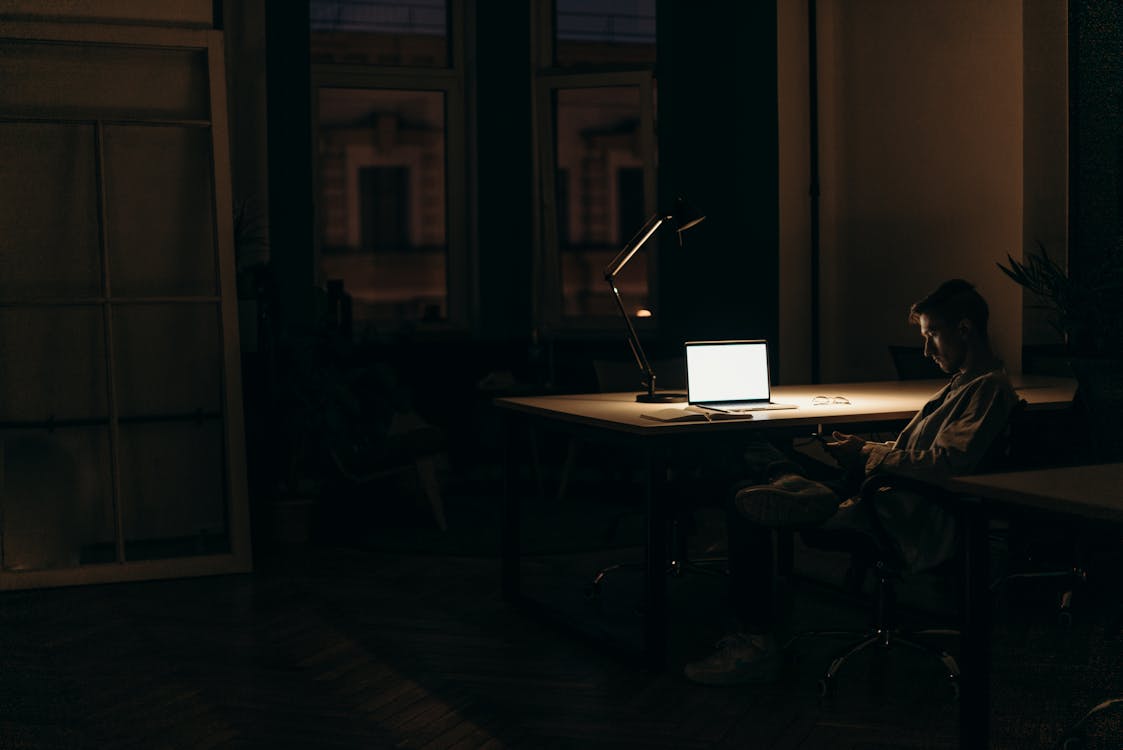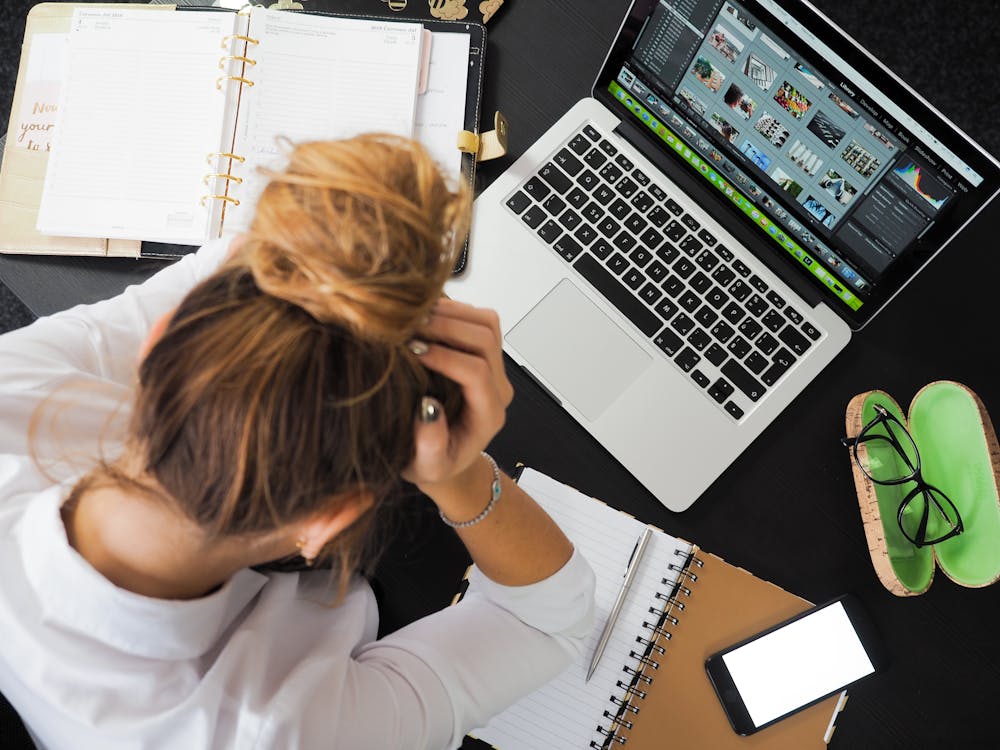
The Worst Study Advice Secondary School Students should not Follow!
Study advice and tips are always precious for every student since the school does not teach us how to study. It is possible that many students never learned how to study effectively over the course of their education. Secondary school is where students start to have more control over their study sessions, there is also no doubt, some secondary school study advice that is not effective at all for students.
This article is not only made for secondary school students but students in general. There are many bad study habits that students practice regularly but do not realize that it is not effective at all! Let’s begin.

Getting little sleep ≠ is productive!
I am sure we are all guilty of feeling like this. There is an unspoken link about the lesser sleep we get as students mean we are being productive. This is one of the most unhealthy and dangerous notions that modern-day students and even adults have. Many of us feel uneasy knowing we are laying around and not making use of our time efficiently. However, it should not be this way.
With everything in the world advancing and moving forward so quickly, we also find the need to catch up and be ahead of it. There is something about this notion that we need to stop normalizing. There are plenty of university students who juggle multiple commitments on top of their academics and often say “I only got a few hours of sleep”.
The actual truth about these types of people is that they have little to no time management skills, and are not so much of a “hard worker”.
Read also: Sleep Deprivation: How It Affects Students & Good Habits To Adopt for Better Sleep
Thanks to peer pressure, many of us who have such friends in our social circle, may feel the need to catch up to them and live their life like them. Causing many of us to feel burned out at the end of the day.
Here is one of the best pieces of secondary school study advice for those who feel pressured/want to get out of the vicious circle of societal pressure:

Understanding your goal
Though to a certain extent, there are students and adults who go about their lives like this, and that is completely okay. This is because they have different goals for themselves.
And these are people who have different goals from you. Instead of fixating and focusing on what others are doing, you should focus on yourself. Always ask yourself, is your goal different from these people?
You live your life based on how you want your life to go, you should do things at your own pace and prioritize what is important to you. Do what makes you feel right, happy, and comfortable and as long as you feel accountable for the effort you are putting in, you are not letting yourself down.
(This is the best piece of advice I have ever received.)

Multi-tasking
Much like the mentioned point above, the notion that multitasking means your productivity level is high and off the roof because you can do multiple things at the same time. Especially when it comes to academics, multitasking is not recommended for students.
Though multitasking helps students check many things from their to-do list in a shorter amount of time, it is not the best way to get things done especially when it comes to academics. For instance, some students may choose to watch a Netflix series or constantly text their friends during their study sessions. Instead of effectively completing these tasks, students’ minds become distracted and can easily reduce productivity by up to 40%. Not only so, multitasking cause students’ work to lack quality.
How to avoid multitasking:
1 - Keep your phone away
2 - Mute all the notifications on your laptop
3 - Don’t study infront of the television
4 - Work in a quiet space
5 - Time management

Memorizing everything
Especially for secondary school students, you should avoid memorizing everything. The reason is, that secondary school education is still about building a strong foundation for further education. Knowing and building a strong foundation in your academics will help you to better understand concepts and topics faster when you are in your tertiary and college education. Memorizing instead of understanding at the beginning stage of education can be detrimental to your studies in the future. Our memory fades over time easily, whereas knowing the concept and theory allows students to connect the dots faster and retrieve the required information later in their education years.
How to understand concepts over memorizing them?
Practice teaching to others, or pretend to explain the concept to a kid. The science behind teaching others about a concept you have learned helps the brain to structure the information into your own words and in simpler terms.
Constantly rereading and summarizing
One of the most used study techniques is rereading concepts and summarizing them. You may ask why is this one of the worst study techniques. Rereading and summarizing is a low-tier study method that reaps few benefits. Rereading and summarizing are good at the beginning and the end of your revision. Then what study method should you adopt for effective study? Try Active Recall and Spaced Repetition.
Active Recall helps students to retrieve information from the brain and trains their brain to pull the right information for the right questions. Paired with Spaced Repetition, which helps students to store information and materials in their long-term memory, can reap powerful benefits. Try it!

Staying up late and waking up early to study
24 hours is not enough for the majority of the people in the world, especially for students. The time students are left with after completing the last topic in their subject and the start of the examinations is so short as a consequence of the curriculum being packed tightly. Hence, many resorts to studying till late at night and then waking up early to study, only getting a few hours of sleep in between.
Here are a few reasons why this is one of the worst secondary school study advice you can ever follow. Firstly, you are not getting enough sleep. Lack of sleep leads to restlessness the next day, only making it difficult to concentrate. Additionally, the information that you have taken in during the day will have a lesser chance of staying in your memory. Your brain cells need to rejuvenate and repair during your sleep and getting little sleep will disrupt it.
Secondly, you will feel stressed out over time. Consistently doing this will lead you to burn out quicker, remember, you are in a marathon when it comes to academics, not a sprint.
With that, how to avoid falling into this cycle before the start of your examination?
1 - Time management
Time management is important as a student, and has been consistently mentioned in this article. The best way to time management is to plan and schedule. Prioritize what you need to do and work around the remaining hours you have.
2 - Study smarter, not harder
Many hours of studying can be cut down if students use smarter study strategies. There are many study strategies that students can adopt to study smarter, and you can find them here.

Following strictly a study schedule just because
As mentioned in the previous paragraph, that students should plan and schedule to better manage their time. However, students should be able to adapt quickly and be flexible with changes to their study schedules. For instance, you have planned to study the next chapter this coming week, but you are not confident in the previous chapter and think you need extra time. This is where you should learn to be flexible with the schedule you have made for yourself. Either you delegate extra time to catch up or shorten the time for the other chapters.
In a nutshell, it can sound very daunting, as you have to be flexible, time manage, work hard and etc. However, with the right secondary school study advice, you will be able to overcome the bad habits and create new and effective ones.

Written by
Tutopiya Team
Educational Expert
Related Articles

Which Is the Toughest Subject in IGCSE and How Can You Overcome It?
Tackle tough IGCSE subjects! Discover the hardest IGCSEs and get expert tips for success in Maths, Physics & more, essential for IB & A-levels.

Is 6 Months Enough to Prepare for IGCSE Exams?
Comprehensive guide and expert insights on educational topics for IGCSE, IB, and international curriculum students.

A-Level and IB Students: 6 Steps to Nail Your University Application
A-level & IB students: Nail your university application! Get expert tips on building a winning application for top international unis.


